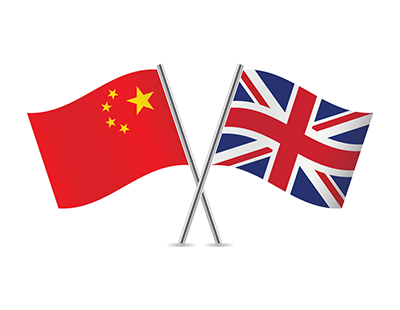However, to convert sales potential into completions it is necessary to know the separate buyer demographics, Di Lieto says.
“Being treated as a homogenous mass by companies from the West is a frequent experience for Chinese individuals, and it is considered insulting,” she advises. “It also generates ineffective target marketing and brings sales opportunities to a grinding halt. Therefore, it is important to understand the property buying market segments.”
Parents of students the main driver of demand
The biggest group buying homes in Britain are the families of students attending university in the UK, Di Lieto says.
These numbers rose from 106,000 in the last academic year to more than 120,000 this year, and figures are expected to grow rapidly for the foreseeable future – even with Covid-19 in the frame.
This is partly due to anti-China behaviour from the Trump administration that has helped make the UK China’s international higher education study destination of choice.
“Chinese students are from wealthy middle-class families, whose ultimate goal is for their offspring to become international citizens equipped to take family businesses to success in overseas markets, or become senior executives in international corporations,” Di Lieto explains.
“The commitment to education frequently extends to a desire for a property close to campus that ensures home life stability to create the best chance of a good degree.”
However, other motivating factors are involved, Di Lieto says. On average students are visited 3.3 times per year by family or friends, and visitors need somewhere to stay, plus many families seek long-term holiday homes in the UK.
“Families also often want to spread their investments overseas through buying property, plan to work in the UK, or even apply for residency,” Di Lieto adds. “All of these factors may apply.”
Chinese alumni of the British education system frequently become another property buying demographic, Di Lieto says.
“Familiarity generates confidence to buy property as an investment. Often this is based on recommendation from friends, and it is not unusual to buy sight unseen.”
Chinese HNWIs, she adds, are increasingly drawn to making strategic investment in the UK, using property to build diversified financial portfolios. London is now the favoured overseas destination for securing long-term financial return, with residential property on the list of popular options.
“This group seeks premium acquisitions purely as an investment, and primarily in the capital,” Di Lieto says.
Expats the other main buyers
The other HNWI buying group, Di Lieto explains, is the rapidly growing number of Chinese expats that qualify for the Home Office Tier 1 visa – which requires at least £2 million in liquid assets.
“The popularity of the UK is again driven by Trump’s behaviour that has caused a steep decline in US property sales to Chinese nationals,” Di Lieto says. “According to China’s biggest international property finding service, Juwai, there has been a year-on-year first quarter fall in sales of 36%, even though Chinese buyers still spent $13.4 billion on residential property in March alone.”
Each of the groups described above are very different, Di Lieto advises, with each having their own motivations to buy, their own media likes and habits, and their own property buying triggers.
“Though it is essential to treat them as separate target demographics, they do share one thing in common that can make them easier to sell to. When Chinese buyers become satisfied customers, they inevitably become self-appointed sales ambassadors before their peers.”
She adds: “It is part of Chinese consumer culture to highlight satisfaction with purchases and broadcast it in favoured social media circles, particularly in the case of unusual or premium priced acquisitions. This is not missed by other potential buyers.”
HNWIs are the exception to widescale sharing of information, according to Di Lieto - crucially, however, they do circulate details to friends and trusted peer networks, which from the perspective of property sales ‘is at least as valuable’.
“Overall, such is the importance of social media endorsement that more than 50% of high and medium-priced ticket items in China are bought as a direct result of social media recommendation,” Di Lieto concludes.

















Join the conversation
Be the first to comment (please use the comment box below)
Please login to comment